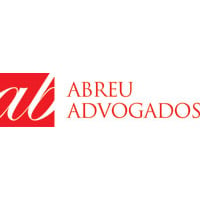

Partner | White & Case






Philip Stopford
Partner | White & Case
Number of years practice: 30+
Principal practice areas: Project development and finance
Languages spoken: English
What is the geographical focus of your practice in Africa?
Pan-African practice.
Please describe the most important matters you have worked on in the African market in the last two years, including your role and the significance of the matter (if any) to the development of business and law.
I have advised on legal issues arising from some of the largest project development and finance, M&A, equity capital markets and dispute resolution matters in Africa over the last two years.
With varied roles, acting for corporate sponsors and borrowers on projects and transactions, particularly in Egypt and Nigeria – our practice has gone from strength to strength.
Examples include advising Tahrir Petrochemicals Company on the development and financing of a US$11bn petrochemical complex in Egypt, including proposed financing from UKEF, HERMES, OPIC and EDC. This follows our representation of the sponsor on the development and financing of a nitric acid and ammonium nitrate complex, as well as an ammonia complex at the Suez Industrial Area on the Gulf of Suez in Egypt. This project will significantly enhance Egypt’s industrial base.
I’ve also advised Carbon Holdings in connection with its proposed IPO in 2019 – which would be the largest IPO in Egypt since 2011 – as well Al Nowais Investments in connection with the 2,640 MW coal-fired power generation plant. This will be the first coal-fired power plant to be built in the country to meet the country’s acute power shortage.
What differentiates your practice from that of other private practice lawyers?
I am a valued counsel to major clients seeking to develop and execute large-scale projects worth up to tens of billions of US dollars across much of the globe under both English and New York law. Particularly strong track record of helping clients to structure multi-sourced financings involving commercial banks and export credit agencies in developed and emerging markets, as well as in raising equity for these projects.
I have extensive experience preparing concession agreements, tender documents, construction, finance and security documents, as well as the drafting and negotiation of all other necessary contracts.
I’ve also represented developers and contractors in a range of intricately structured project financings involving LNG plants, upstream and downstream oil and gas facilities, refineries, mining and metals, motorways and power facilities and under a number of different structures.
Why has Africa been a particularly strong focus for you?
White & Case is truly committed to Africa and has been active on the continent for more than 40 years. This has given us a unique insight into doing business across the continent, and our practice has grown with needs of our clients – opening offices in Johannesburg in the 1990s and more recently in Cairo.
We advise leading corporates and financial institutions, government-related enterprises and government bodies on many of the most innovative and complex transactions and high-stakes disputes across the continent, and globally. Our capabilities cover a wide range of project development and finance, banking and finance, equity and debt capital markets, dispute resolution and corporate, joint venture and M&A matters.
What changes have you seen in the appetite for Africa-based ventures and investments over the last five years?
While there is still sustained interest in the extractive sectors in African countries, the past decade has seen strong growth in investment in Africa’s emerging consumer market.
Countries experiencing biggest investment growth in recent times have included Egypt, Ghana, Ivory Coast, Ethiopia, Morocco, Guinea, Rwanda, Senegal, and Tunisia. FDI in these countries has increased significantly despite a slowdown in the rest of the continent. A global weakening of commodity prices and economic slowdown in the EU and China has contributed to this.
Africa still faces challenges attracting private investment from commercial banks and institutional investors. To overcome this, the use of blended finance has gained popularity over the last decade and is welcomed by investors in search of new market opportunities in Africa. Blended finance makes use of public or philanthropic funds that act as risk capital to “leverage” private investments in emerging markets and lower the high upfront costs of investing across sectors, while enabling investors to access attractive investment opportunities in Africa. This is favoured due to its ability to address risk perceptions, create adequate risk profiles and encourage investment. The role of DFIs in African FDI initiatives also cannot be understated.
The continent is rich in untapped renewable energy resources, and is sitting on large reserves of coal and gas. For example, the African Development Bank has significantly increased investment in the African power sector, in South Africa and in renewable generation projects and key cross-border transmission interconnectors.
Are there any aspects of the African legal market that you would like to see change?
While the continent saw an influx of international law firms during the first half of the decade, interest has slowed over the past two years as opening new offices or even forming an alliance with a firm in Africa is seen by most as risky. Increased legal, political and policy certainty and stability would go a great deal to address this.
Secondly, there are legal practice requirements in some African countries that make it hard for international firms to gain entrance into the African legal market. For example, Egypt, Kenya, Uganda and Tanzania apply nationality requirements for lawyers to practice local laws or gain admission to their respective bars. These can be onerous on foreign practitioners and it can take years before these practitioners will be eligible to practice.
Thirdly, the legal education system in African has, in some instances, been slow to adapt to modern practice trends. The focus of legal education across Africa should be on both technical and commercial legal aspects to ensure that local lawyers are able to successfully manage cross-border and large-scale infrastructure projects.
Despite these challenges, the most viable options available to international law firms considering a move into Africa remain an office launch, a formal alliance, or informal associations with multiple firms across the continent. The most important factor to operating successfully in Africa is to select and focus on the right markets instead of planting a flag in every country.
What megatrends do you think will shape the African market over the coming five years? How (if at all) will these trends affect your practice?
2018 has seen leadership changes across the continent, creating optimism for improved economic prospects but caution amongst investors in certain markets as they await clarity on economic policy and existing political risks, governance and transparency issues.
The two largest sub-Saharan economies, South Africa and Nigeria, are holding elections in 2019 and there is a hope that these elections will deliver important policy changes. Although the next three years may be quite turbulent from an FDI perspective it is generally expected that the changes will be positive for FDI. New leaders in Africa have often been elected on a reform or anti-corruption ticket and are seeking to reform their economies and reassert themselves as dominant FDI destinations.
The Better Utilization of Investments Leading to Development (BUILD) Act was also signed into law in the US in October 2018 by the US Senate and is anticipated to encourage investment in Africa. The US remains a dominant investor in the African natural resources sector – underground resources such as oil, gas and minerals account for roughly half of all US direct investment in Africa. The Act is designed to support Africa and other emerging markets in developing infrastructure projects by establishing the US International Development Finance Corporation to raise and provide financing to enable emerging markets to undertake infrastructure projects. We anticipate that this will strongly increase US participation in African infrastructure development.
Finally, the recent trend towards foreign investor participation in the telecoms, shipping, power generation and aviation sectors in Africa will lead to strong growth and investment in these areas in the next five years.